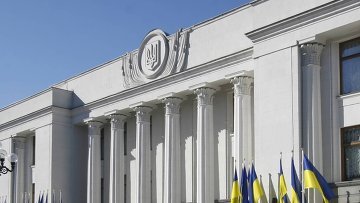MOSCOW, March 31 (RAPSI) - Universal Trading & Investment Co. (UTICo) lost an appeal challenging the dismissal of its US complaint alleging that affiliates and employees of Credit Suisse had helped “a pair of rogue Ukrainian officials,” according to court documents obtained by RAPSI.
In 2005, UTICo won a default judgment amounting to upwards of $18 million against United Energy Systems of Ukraine (UESU), which was formerly headed by Ukrainian ex-prime minister Yulia Tymoshenko.
A complaint filed jointly by UTICo and Foundation Honesty International Inc. asserted nine causes of action based on the argument that Credit Suisse knowingly laundered money in order to help rogue Ukrainian officials spirit away funds owed to the plaintiffs as a result of the earlier default judgment.
The complaint was dismissed for lack of personal jurisdiction over all defendants except Credit Suisse AG, and for failure to state an actionable claim.
The plaintiffs appealed the complaint, challenging both conclusions. In particular, the plaintiffs asserted that the court had personal jurisdiction over other Credit Suisse defendants, and that the claims either were or could have been sufficiently pled given the opportunity to amend the complaint.
With regard to the first challenge, the US Court of Appeals for the Second Circuit held earlier this month that “Nothing in appellants’ original complaint suggests, let alone supports a finding, that the district court had either specific or general jurisdiction over Credit Suisse Guernsey or Credit Suisse Trust.”
The plaintiffs asserted that two $460,000 transfers were made from Credit Suisse accounts to accounts in New York that were allegedly held by Ukrainian officials. They alleged that the three Credit Suisse entities knew that the money was owed to the plaintiffs.
The court noted, however, that since both transfers occurred years prior to the filing of the lawsuit that resulted in the default judgment, “it is impossible that the transfers had any relationship, let alone a ‘substantial relationship,’ to appellants’ current claim that the banks knew appellants were owed money, and still helped the Ukrainian officials hide assets from them.”
Other grounds for jurisdiction advanced by the plaintiffs on appeal were equally weak, the court opined.
With regard to the adequacy of the claims, the Second Circuit court found that the lower court had ruled correctly. “All of appellants’ claims fail as a matter of law,” according to the recent decision.
The Second Circuit court likewise found that the lower court ruled correctly in denying the plaintiffs leave to amend their complaint, adding that it was unclear whether the appellants had sought leave to amend their complaint within the relevant timeframe.
This is only one of UTICo’s attempts to secure the earlier judgment.
UTICo filed a lawsuit against Tymoshenko with the US District Court for the Southern District of New York in November 2011. In December 2012, the claim was dismissed for lack of jurisdiction.
UTICo was granted the right to amend its claim last April, but only in connection with alleged violations of the RICO Act. Following the submission by UTICo of an amended complaint in June, Tymoshenko moved in October to dismiss. That motion remains pending.



